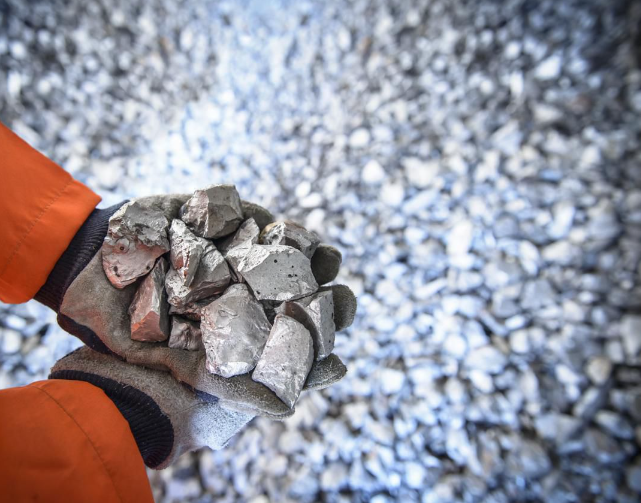Titanium is a chemical element with the symbol Ti and atomic number 22. Titanium is a versatile, strong, lightweight, and corrosion-resistant metallic element that has become an important industrial metal used across many industries. Its unique properties make it suitable for high-performance applications.

The Common Grades of Titanium
- – Commercially Pure (CP) Grades
These unalloyed titanium grades are classified from Grade 1 to Grade 4 based on their level of oxygen content. Grade 1 has the lowest oxygen content and is the most ductile. Grades 3 and 4 have higher strength due to increased oxygen content.
- – Ti-6Al-4V
This is the most widely used titanium alloy, accounting for over 50% of titanium usage. It has 6% aluminum, 4% vanadium, and the rest titanium. It offers a good balance of strength, ductility, and high-temperature performance.
- – Ti-3Al-2.5V
This alpha-beta alloy has excellent weldability and is used in airframes, jet engines, and marine applications.
- – Ti-6Al-2Sn-4Zr-2Mo
Often called Ti 6-2-4-2, this near-alpha alloy offers high strength and good corrosion resistance for aerospace uses.
- – Ti-10V-2Fe-3Al
The high strength and hardness of this alpha-beta alloy make it suitable for aircraft landing gear and other high-stress applications.
- – Ti-15V-3Cr-3Sn-3Al
Also called Ti 15-3-3-3, this beta-titanium alloy combines strength, ductility, and corrosion resistance for applications like aircraft structural parts.
- – Ti-6Al-2Sn-4Zr-6M
This alpha-beta alloy, known as Ti 6-2-4-6, has enhanced creep resistance for jet engine components.
- – Ti-13V-11Cr-3Al
This alpha-beta alloy called Ti 13-11-3 offers the best corrosion resistance of any titanium alloy and is used for marine and chemical processing applications.
Key Properties of Titanium
The key properties of titanium are its light weight, strength, corrosion resistance, biocompatibility, useful temperature range, along with reasonable ductility and hardness depending on the alloy.
- – Low density
Titanium has a density of 4.5 g/cm3, which is about 60% of the density of steel and alloy steels. This makes titanium a lightweight metal.
- – High strength
Titanium has relatively high tensile strength compared to its low density. Commercially pure titanium can have tensile strengths up to about 434 MPa. Alloyed titanium can reach tensile strengths over 1,400 MPa.
- – Temperature properties
Titanium retains its mechanical properties at moderately high temperatures of up to 350°C. The addition of alloys improves high-temperature strength.
- – Hardness
Titanium has relatively low hardness – around 36 HRC for commercially pure grades. Alloying can increase the hardness significantly.
- – Ductility
Commercially pure titanium grades can have elongation up to 20% or more. Titanium alloys have lower ductility but are still considered reasonable.
The Applications of Titanium
Titanium’s unique strengths make it the metal of choice across many critical applications. Here are some of the major applications and example brands using titanium:
- – Aerospace
Aircraft engines, airframes, helicopter parts (Rolls Royce, Boeing, Airbus)
- – Medical
Surgical implants, pacemakers, orthopedic and dental implants (Stryker, Zimmer Biomet)
- – Industrial
Heat exchangers, desalination plants, pulp and paper plants (GE)
- – Automotive
Connecting rods, valves, springs, exhausts (Ferrari, Porsche, Lamborghini, McLaren)
- – Consumer goods
Jewelry, watches, sports equipment like golf clubs, bicycles (Rolex, Omega, Callaway, Trek)
- – Military
Aircraft, armor, missiles, naval ships and submarines
- – Chemical
Tanks, valves, pipes for chemical processing plants
- – Marine
Propellers, driveshafts, hulls, rigging, and other saltwater equipment
- – Power generation
Condensers and heat exchangers for nuclear, coal, geothermal plants
- – Architecture
Roofs, facades, compression rings, and structural supports

